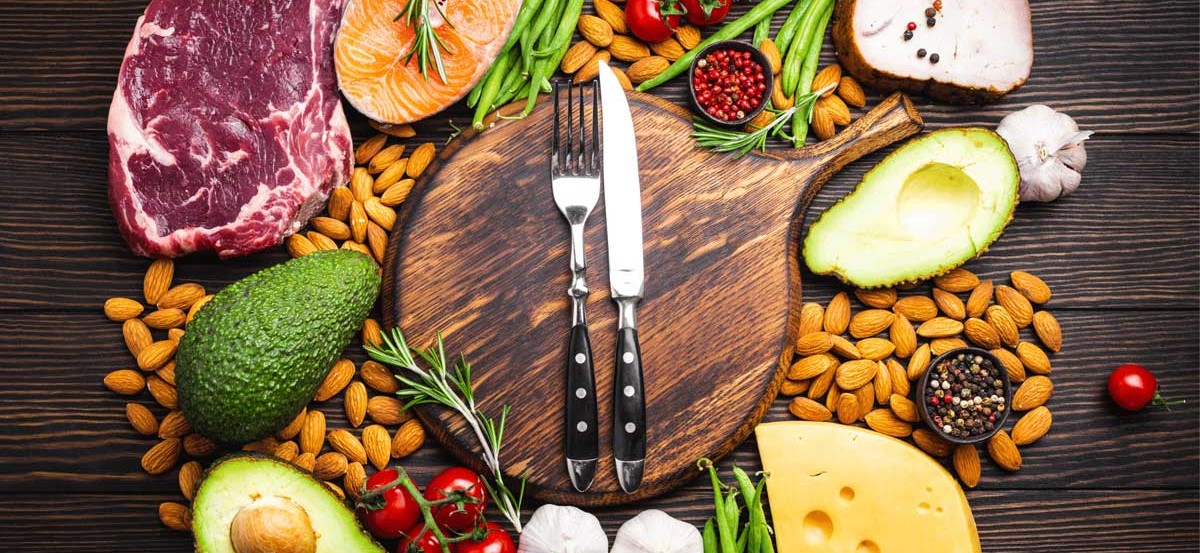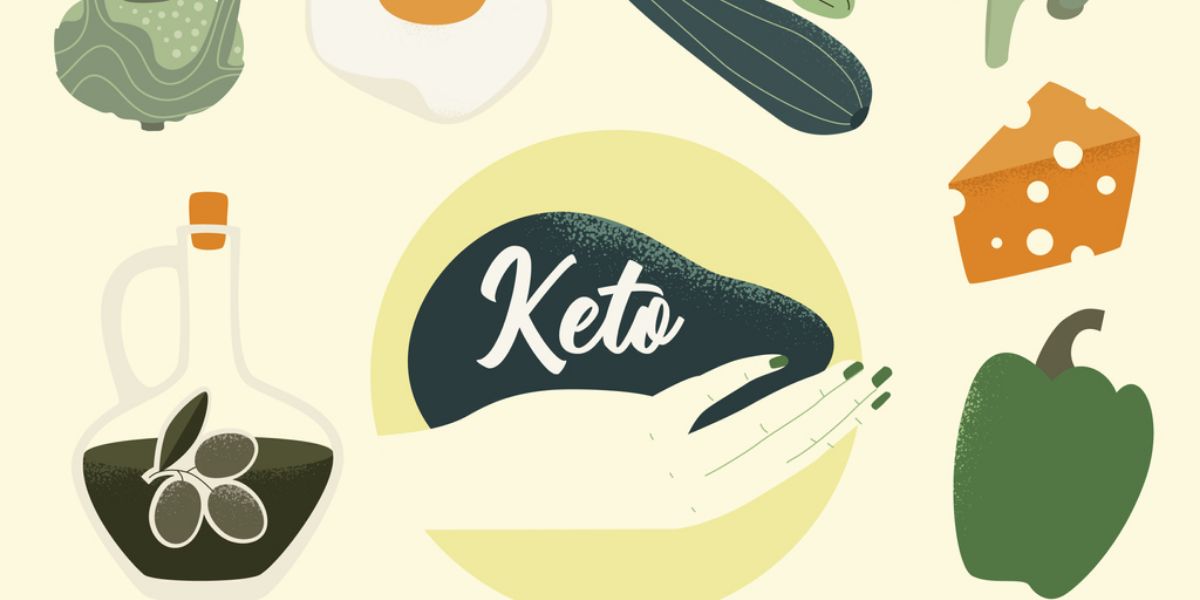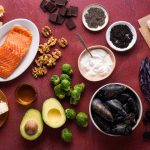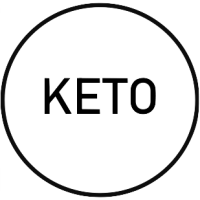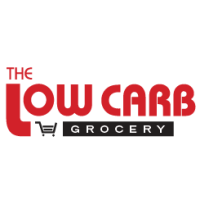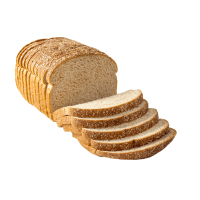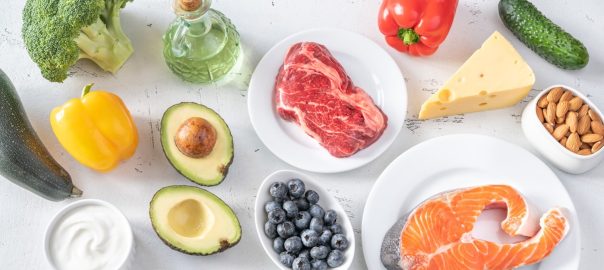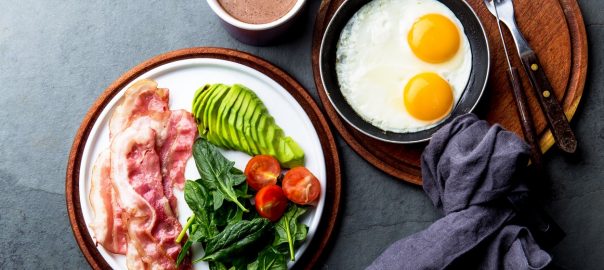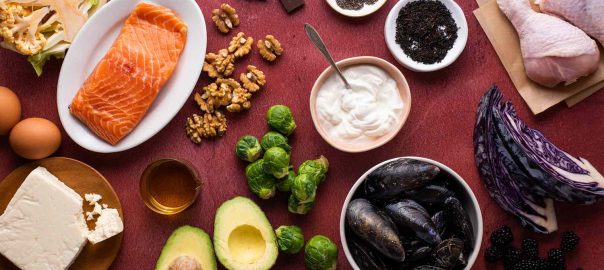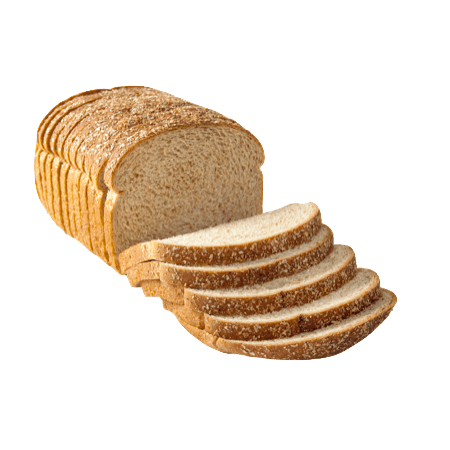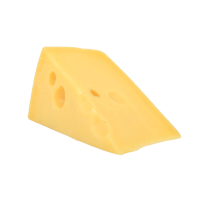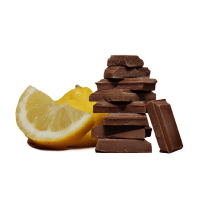Tips for Combining Keto & Gluten-Free Diets
Making it easy to stay keto & gluten-free
When you choose to live a healthier lifestyle by following a ketogenic diet, you’ll quickly learn how to select foods and ingredients that offer an amazing combination of nutritional value, low carbs, and great taste. How might this change when you also need to avoid gluten? It’s quite simple, really. Here are some tips and tricks to make it even easier.
These days, you’ll see the phrases ‘keto diet’ and ‘gluten free’ appear all over online food retailers, in restaurants, and in grocery stores. It’s easy to understand why. Many Canadians are much more health-conscious and tuned into the foods they eat, and that includes having a better understanding of how certain elements of food like carbohydrates and gluten can affect a person’s health.
The popularity of gluten-free eating and the ketogenic diet have risen dramatically in recent years, but there remains a great deal of misinformation and confusion on what the two diets really mean, and how they can be combined. Here, we’re going to take a closer look at the ketogenic diet, explain what gluten is and why it matters, and how to shop smart for products that are both keto-friendly and gluten-free. Let’s get started with an overview of the ketogenic diet and how it works.
Explaining the Ketogenic Diet
It’s a common misconception that the ketogenic diet and the low carb lifestyle are essentially the same thing. In some ways, they are quite similar. Both focus on reducing the amount of carbohydrates a person consumes in favour of foods rich in protein, healthy fats, vitamins and other essential nutrients. However, the keto diet has a very distinct and strict set of rules related to the reduction in carbohydrates that are designed to coerce the body into a state of functioning known as ‘ketosis’.
In a typical low carb diet, blood glucose obtained from the digestion of certain foods is still used as a source of fuel to power our bodies in conjunction with the burning of fats and proteins. When the body enters ketosis on the ketogenic diet due to a very low, consistent, and controlled intake of carbohydrates, glucose will no longer be used as a main source of fuel to power the body. To replace glucose, the body uses the liver to breakdown fats and produce molecules known as ‘ketones’.
The ketone molecules produced by the liver are used to power the body in a similar fashion to blood glucose, but maintaining a state of ketosis requires close attention to foods and nutrition. Eating too many carbs can cause the body to revert back to burning glucose, and it can take time to rebalance the body and get it back into the state of using ketones as the main source of power.
The ketogenic diet offers many of the same health benefits as the low carb lifestyle, such as better control over appetite, weight management, reduced risk of heart disease, lower blood pressure, improved cholesterol levels, and greater stability of blood insulin.
With that explained, it’s time to take a closer look at gluten, and gain an understanding of how the keto diet works for individuals who have gluten sensitivities.
What is Gluten, and Why Are Some People Sensitive to It?
Gluten refers to certain proteins found primarily in grains, such as wheat, malt, barley, and rye. Glutenin and gliadin are the two protein variations that are responsible for causing reactions in those individuals with gluten sensitivities. While not strictly defined as gluten, other grain-type foods such as rice have gluten-like proteins that are similar in composition and can trigger reactions for some people.
There are two common explanations for gluten sensitivities. First, the person may have a condition known as Celiac disease. This genetic medical condition is a type of autoimmune disease that occurs when the intestines are exposed to gluten proteins. When this occurs, the body triggers an immune response that irritates and damages the walls of the intestine, preventing nutrients from being properly absorbed and causing moderate to severe abdominal discomfort. Quite simply, people with Celiac disease are unable to safely consume foods containing gluten without experiencing symptoms such as diarrhea, constipation, gas, abdominal soreness, fatigue, and bloating, among others.
The other reason a person may react negatively to foods containing gluten is due to an allergy to grains such as wheat. These individuals may experience similar symptoms to those associated with Celiac, but will not be consistent among all foods containing gluten. Their reactions will be centered around the foods containing the allergen, not necessarily all of the foods that contain gluten.
There is often confusion and misdiagnoses around gluten sensitivities, and many people who believe they are sensitive to gluten will actually be so. In some cases, other food ingredients that are commonly found alongside gluten may be the true cause. For this reason, it is important to seek out professional and trusted medical advice regarding any food sensitivities or allergies that you may have. Self-diagnosing can frequently lead to incorrect assumptions, so it’s always better to be sure through proper analysis and testing.
How Would a Gluten Sensitivity Affect the Ketogenic Diet?
In general, the ketogenic diet inherently has very little gluten in the types of foods that are recommended. With the keto diet focusing on meats for protein and fats, as well as fresh fruits and vegetables, and avoiding common carbs and sugars, most sources of gluten are already excluded. However, it often surprises people to learn how many products contain hidden gluten in their ingredients. For example, some types of common kitchen staples like soy sauce, bouillon, soups, salad dressings, and even hot dogs are known to contain gluten. Let’s explore this in a little more detail.
What Keto-Friendly Foods Might Contain Gluten?
The Gluten Intolerance Group website has a very helpful resource that lists many of the most common foods where gluten may be hiding. Finding out if a food item contains gluten can be easy if you know what to look for on the label. While wheat, barley and rye are the biggest ingredients to avoid, other common ingredients that appear in the nutrition facts include flours, soy sauce, malt vinegar, modified food or wheat starch, miso, yeast extract, hydrolyzed wheat protein, rusk, and many others.
Some of the common food items on the GIG website list that would generally be considered keto-friendly include:
- Prepared seasoning mixes such as taco seasoning
- Beef jerky, particularly teriyaki-style which includes soy sauce
- Veggie burgers and vegan meat alternatives that use wheat as a binder
- Pickles and preserved foods that include malt vinegar in the brine
- Flavoured coffees and teas may contain traces of barley
- Nuts from bulk stores where cross-contamination may occur
If you have a gluten sensitivity, you can never be too careful. Many products marketed as health foods and keto-friendly may still contain traces of gluten, so always check the labels thoroughly if you’re not 100% certain. So, what are some examples of keto-friendly food products that also happen to be gluten-free?
Popular Keto-Friendly & Gluten-Free Foods
Here at The Low Carb Grocery, we strive to make it as easy as possible for shoppers to find the best selection of healthy low carb and keto-friendly products available. In fact, we’ve even created a complete ‘Gluten-Free’ product category for one-click access to all of these specialty items. Here are a just few examples of the most popular gluten-free and keto-friendly products available in-store and online here at The Low Carb Grocery!
- Krunchy Melts Sugar-Free Meringues – Bite-sized sweet treats in a variety of flavours that you can enjoy on the keto diet, and are completely free of gluten.
- Olive No Sugar Added Sweet Relish – Make sure the condiment shelf in your fridge is free of gluten and sugar with this tasty sweet pickle relish.
- Hughes Sugar-Free Sauces – G. Hughes is famous around the world for amazing gluten-free sauces including BBQ sauces, dipping sauces, and marinades.
- Carbonaut Keto-Friendly Gluten-Free Plant Bread – Did you ever think that bread this delicious could be so healthy, keto-friendly AND free of gluten? It’s true!
- TorPillas High-Protein Gluten-Free Tortilla Chips – Snack smarter with the great crunch of gluten-free TorPillas snack chips. So many flavours to experience!
Be Free of Gluten & Get the Most from the Keto Diet
We hope that this article has proven to be helpful in explaining what to look for and what to avoid when it comes to following the keto diet and keeping gluten out of the foods you eat. In general, the keto diet is a great match for people who have gluten sensitivities. With just a few simple adjustments and a little extra attention to the ingredient lists and nutrition labels, you’ll be sure to have a great experience living the low carb lifestyle the gluten-free way. Take care, and be well!
More Low Carb Lifestyle Articles
Top Snack Foods
Discover the ultimate guide to keto and low carb snacking! We’ve compiled our favourite snacks and sweets that are both delicious and diet friendly! From chocolatey treats to savoury bites, we’ve got something for everyone!
Zero Carb Foods
Maintaining a low carb diet can be challenging, but with the right foods, it doesn’t have to be. This article is packed with product recommendations to help you stay on course. Discover how to fully embrace a keto or low carb diet with delicious meals that satisfy every craving.
Is Going Low Carb Healthy?
Interested in making the switch to a low carb diet but worried about adverse health effects? Learn more about the role that carbs play in your diet and how they affect your overall health and fitness goals to determine if a low carb diet is the right choice for you.
30 Low Carb Foods
Looking for delicious and satisfying meals that fit into your low carb lifestyle? Explore our list of 30 healthy low carb foods, including pantry staples and specialty products.
Getting Started with Keto
The keto diet, as it is commonly known, has surged in popularity due to the dramatic results that people have experienced. However, there remains some skepticism about how it works from those who are new to high-fat and high-protein eating. Learn more about this diet here.





